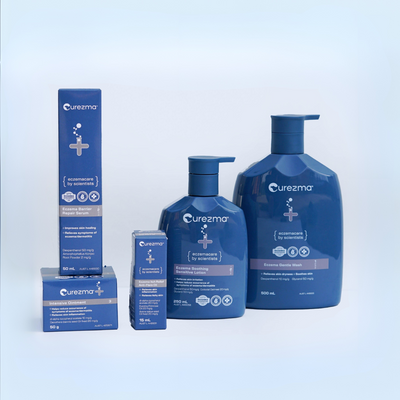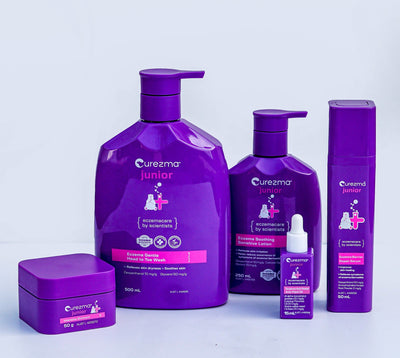Understanding Eczema: Causes, Misconceptions, and Effective Management
Eczema, a common skin condition marked by itchy, inflamed patches, can be perplexing and challenging to manage due to its multifaceted causes and triggers.
By delving into the science behind eczema, debunking prevalent myths, and considering holistic approaches to care, individuals can find more effective, lasting relief. This exploration aims to equip you with a deeper understanding and practical strategies to navigate eczema care thoughtfully.

Eczema Uncovered: Pinpointing the Causes
At its core, eczema is influenced by a combination of genetic, environmental, and lifestyle factors:
- Genetic Factors: A family history of eczema or other atopic conditions such as asthma or hay fever suggests a genetic predisposition.
- Environmental Triggers: Elements like pollen, pet dander, and certain fabrics can exacerbate eczema. Seasonal changes, particularly dry winter air, can also trigger flare-ups.
- Lifestyle Factors: Stress and diet play roles in eczema severity. High-stress levels can worsen symptoms, and certain foods may trigger allergic reactions leading to flare-ups.
Understanding these triggers is crucial for managing eczema effectively. Keeping a diary to note flare-ups in relation to diet, activities, and environmental exposures can help identify personal triggers.
Debunking Eczema Myths: Clarifying Common Misconceptions
Eczema is surrounded by myths that can complicate its management:
- Myth: Eczema is Contagious.
- Fact: Eczema cannot be spread from person to person. It's a non-contagious condition related to the individual's skin sensitivity and immune response.
- Myth: Eczema is Simply Dry Skin.
- Fact: While dry skin can exacerbate eczema, the condition itself is an inflammatory response that goes beyond mere skin dryness.
- Myth: Eczema is Curable.
- Fact: There is no cure for eczema, but it can be managed effectively with the right care strategies, allowing individuals to live comfortably and with minimal symptoms.
Beyond Surface-Level Treatment: Comprehensive Care Strategies
Achieving long-term relief from eczema involves more than just topical treatments; it requires a holistic care approach:
- Moisturising: Regular use of moisturisers helps restore the skin's barrier, preventing dryness and irritation.
- Avoiding Triggers: Minimising exposure to identified allergens and irritants can reduce flare-ups.
- Stress Management: Techniques such as yoga, meditation, and regular exercise can lower stress levels, potentially reducing eczema severity.
- Dietary Considerations: Some find relief by avoiding foods that trigger their eczema. Consulting with a healthcare provider can help identify any specific dietary triggers.
Incorporating gentle, supportive skincare products can complement these strategies. For example, a product like Curezma, formulated to align with the skin's natural healing mechanisms and free from harsh steroids, can be an effective part of an eczema management plan. It's designed to offer relief from symptoms while nurturing the skin's overall health, fitting seamlessly into a comprehensive approach to eczema care.
Conclusion: Empowering Eczema Management
Managing eczema effectively requires a blend of knowledge, proactive trigger management, and thoughtful skin care choices. By understanding the root causes, dispelling myths, and adopting a comprehensive approach to care, living well with eczema becomes more achievable. Remember, the goal is to control symptoms, improve skin health, and enhance quality of life through informed, personalised strategies.








